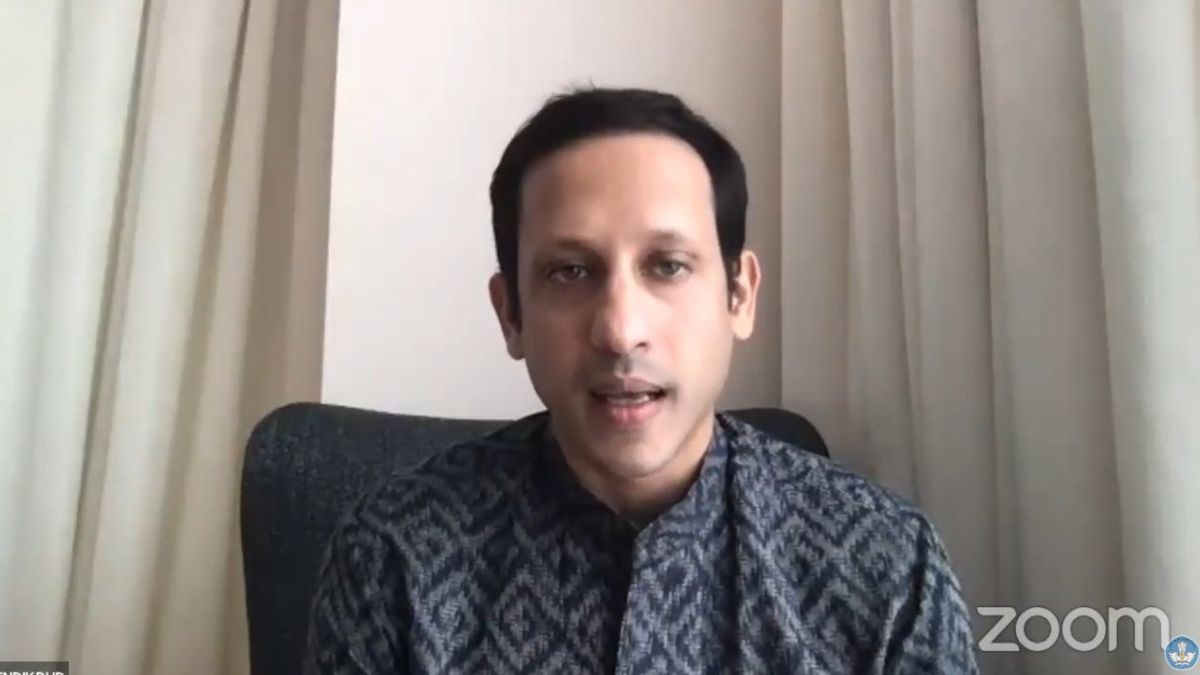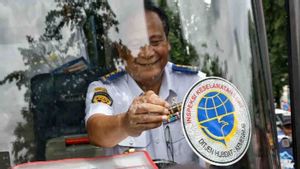JAKARTA - The government makes provisions for learning activities for students in the 2020-2021 school year according to the COVID-19 spread zone in each region, starting from the red, orange, yellow and green zones.
Minister of Education and Culture Nadiem Makarim said the government would only carry out teaching and learning activities in schools in 85 regional cities at the start of the new academic year starting on July 13.
"We allow 6 percent of regions to apply face-to-face lessons but with health protocols or 85 cities. The basic principle is that we use relaxation in opening schools in a conservative way. This means that this is the most difficult way to open schools so that security can be ensured," said Nadiem at the conference. virtual press, Monday, June 15th.
Nadiem did not specify which areas were allowed to reopen schools. What is clear is that 85 cities are green zones, or areas that have no COVID-19 cases.
Meanwhile, 429 other cities or 94 percent of schools in Indonesia are still required to carry out online learning activities from home. This area is included in the red, orange, and yellow zone.
"For areas in the yellow, orange, red zones, face-to-face learning is prohibited in educational units because they still have a risk of spreading (corona virus)," said Nadiem.
Apart from the zoning provisions that can apply learning in schools, there are other requirements that must be met. Schools can be opened if the local government or the Regional Office / Ministry of Religious Affairs gives permission. Then, the educational unit has fulfilled all the checklists and is ready to undertake face-to-face learning.
The last thing that must be done in the implementation of green zone learning during the transition period is that educational institutions must ask parents for permission to approve their children doing learning activities at school.
"For example, the local government has permitted it and the education unit has carried out a check list (protocol), schools can start face-to-face learning. However, they cannot force students whose parents do not allow them to go to school because they do not feel safe enough," said Nadiem. .
"If one of the four conditions is not met, students will continue to learn from home in full," he concluded.
The English, Chinese, Japanese, Arabic, and French versions are automatically generated by the AI. So there may still be inaccuracies in translating, please always see Indonesian as our main language. (system supported by DigitalSiber.id)








